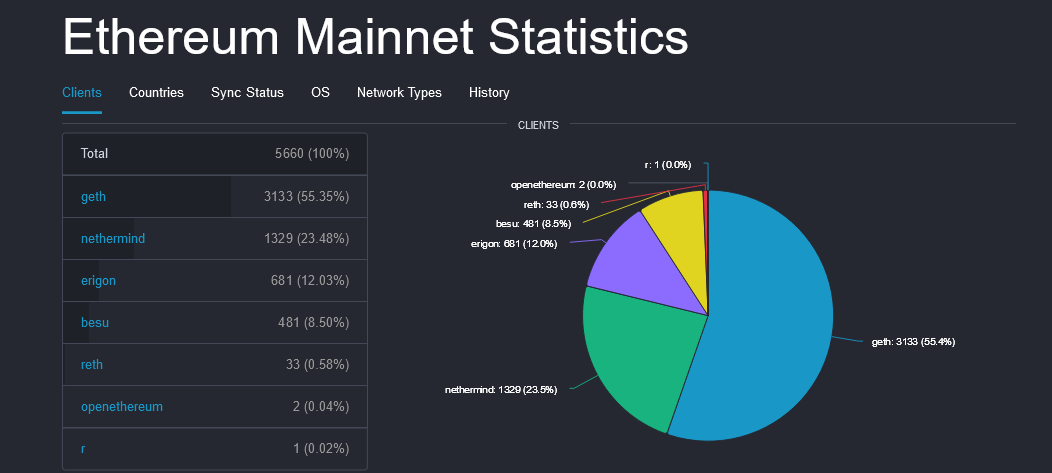Developer: Ethereum Is Not Slow Because Of Geth Client
Péter Szilágyi, a software engineer, contends that the widespread adoption of Geth, an Ethereum client he helped develop, is not why the dominant smart contract platform is “slow.” Szilágyi responded to a thread on social media platform X discussing Solana’s high throughput, stating, “Geth does not control all factors affecting processing speed.”
Geth Is The Most Popular Ethereum Client
Geth is the most popular client in Ethereum, controlling over 55% of the total share of all clients in operation, including Nethermind and Erigon. Besides enabling users to interact with the network, it can be used to deploy full nodes.

Every synchronized full node in operation has to download and store a complete copy of Ethereum, meaning they can verify transactions and blocks independently, contributing to the network’s decentralization. With a higher degree of decentralization, there is higher reliability.
One analyst had argued that Ethereum is slower because of the dominance of Geth. In the analyst view, the Ethereum throughput can be boosted only if full nodes are distributed across the popular client providers or if any more efficient and fast client anchors most.
Szilágyi shot back, saying processing speed has been impacted because “Ethereum’s state is growing fast.”
Blame The Rapidly Expanding “State” For Slow Processing Speeds?
As the network’s state snowballs, the storage rate must keep up. This implies that irrespective of the client selected; the provider must address the storage speed to match the state of the network.
Full nodes are always in sync with the network, basically holding all the “state” of the blockchain—that is, accounts, balances, and smart contracts—they must be efficient in creating storage to remain connected with others. Moreover, since full nodes provide a service, all of them, regardless of their client selection, can receive block rewards once they validate a transaction.
Accordingly, as part of his argument, Szilágyi also said that even if there is an increment in gas limit by 10X, all full nodes operating on Geth, or any other client, would be “perfectly happy.” In Ethereum, the gas limit is the maximum amount of gas (paid in Ethereum (ETH)) that a user is willing to spend on a transaction. The user can adjust it, and those more complex transactions mean a user has to pay more gas.